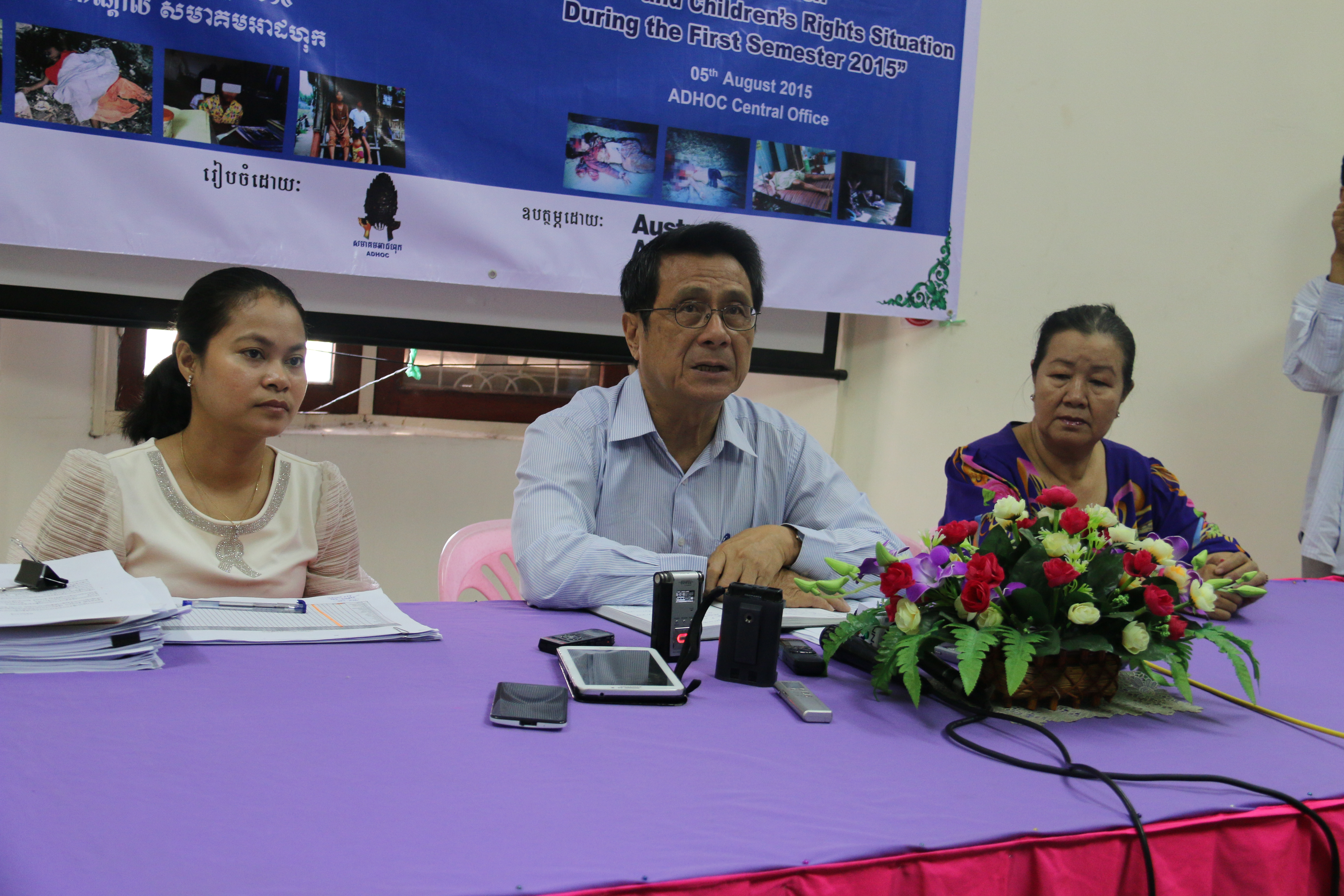The Cambodian Human Rights and Development Association (ADHOC) has serious concerns on the increasing number of rape cases in Cambodia in the last couple of years. Although not all of the reported cases in the newspapers could be verified or investigated but most appear to be the same cases received and investigated by ADHOC.During the last two years (2009, 2010 and the first trimester of 2011), an alarming number of rape cases have been reported to ADHOC. From January 1st to December 31st 2010, ADHOC investigated 501 complaints of rape and indecent assault an increase of 9% (460 cases) from 2009. During the first trimester of 2011, ADHOC recorded a total of 156 cases of rape and indecent assault. If law enforcement is still lacking and serious measure has not been taken to prevent the increasing numbers of rape and indecent assault, rape cases will continue to rise to 600 cases or more in 2011 especially among perpetrators who are fathers, grandfathers, stepfathers, or monks.Rape and indecent assault disproportionately affects young women and girls. In 2009, ADHOC recorded 366 cases of rape on girls under 18 years of age, 357 cases in 2010 and 116 cases in the first trimester of 2011, showing that there is no slowing down in the number of rape cases reported to ADHOC. There are various factors instigating to rape epidemic such as excessive use of drugs and alcohol, the overflow of pornography and the negligence from judicial authorities and police officers in dealing and responding to rape and indecent assault, thereby exposing the victims yet again to more suffering and to what is called a double victimization.
The best solution to prevent rape and indecent assault from rising is to make use of the justice system that is uncorrupt, competent and effective. Although, Cambodia has ratified number of conventions and adopted laws on the protection and prevention of the rights of women and children, ADHOC still has serious concern about the treatment of such cases at various levels of the justice system, especially the interpretation of relevant laws by the judiciary and the unlawful practice of compensations payments rather than of the punishment of the perpetrators. In a number of cases that ADHOC have investigated and intervened, some victims are likely to accept token compensation in exchange for the dismissal of all judicial proceedings. This practice is cultivated and sometimes even imposed by the police and judges to victims in order to drop criminal charges against perpetrators.
To highlight the need for urgent action against rape, which is the most common form of violence against women and children in Cambodia, ADHOC has the following recommendations:
The Royal Government of Cambodia should:
– Reinforce reliable tool to monitor the implementation of the UN Convention on the Rights of the Child
– Create a Juvenile Justice System and train judges on children’s rights, in order to recognize the vulnerability of child victims and adapt procedures to their special needs.
– Conduct awareness campaigns in order to educate children and their families, especially in rural areas, about the risk of rape.
– Implement a sexual education program in primary school and high school for Cambodian children in order to instruct about the devastating consequences of rape and types of recourse available to victims.
– Strictly enforce the prohibition of pornography viewing and access to pornography by children.
– Expand social services for the rehabilitation or child victims as well as medical and psychological treatments.
– Provide social services and sufficient human and financial resources in order to address the needs of minors who commit sexual assault on other minors.
– The Ministry of Justice and the Supreme Council of Magistracy should reinforce judges and prosecutors on the proper implementation of the law. Police officers and judges should not cultivate or impose victims to accept civil compensation instead of proceeding with criminal charges against perpetrators.
For further information please contact:
Ms. Chan Krisna Sawada, Head of Women’s and Children’s Rights Program, 017 384 301
Ms. Mony Lim, Duputy Head of Women’s and Children’s Rights Program, 012 834 449
Ms. Sophal Kea, Lawyer for the Women’s and Children’s Rights Program, 012 552 542


